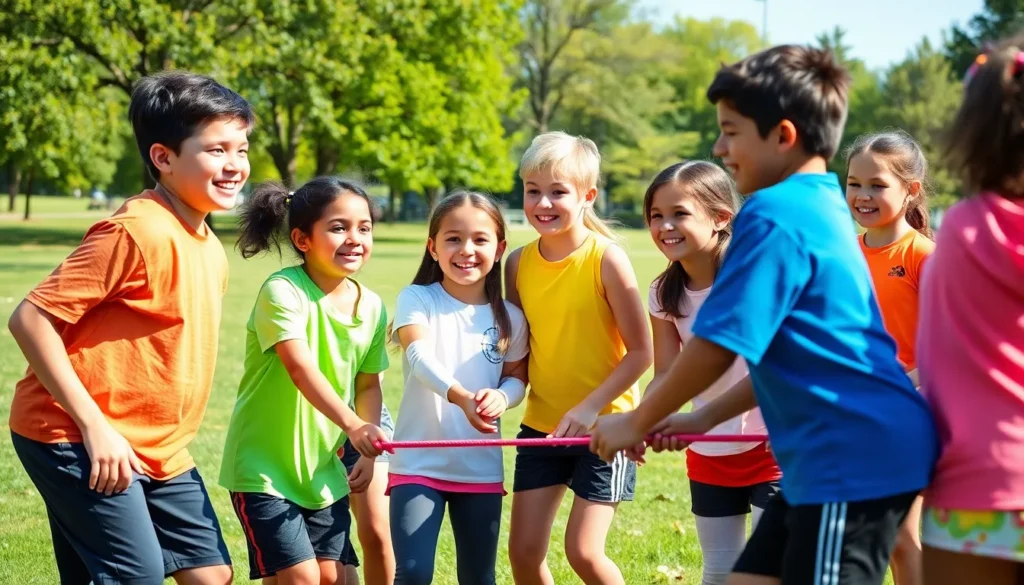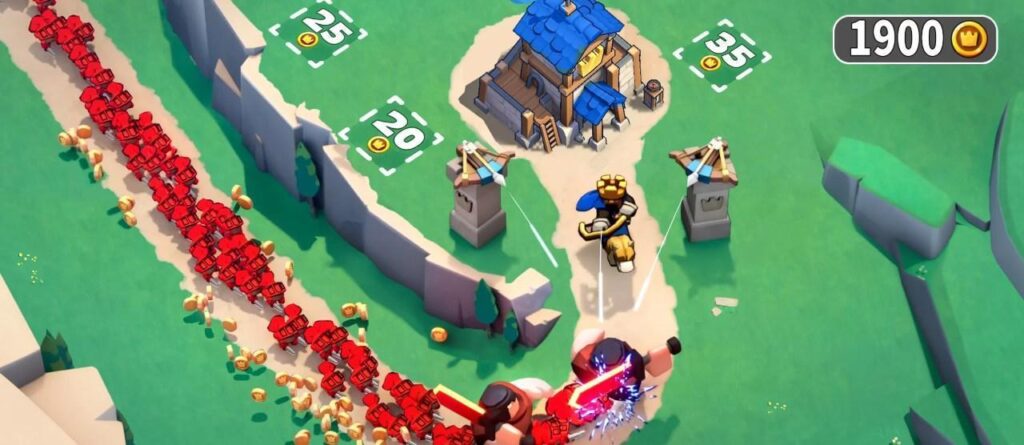Table of Contents
ToggleIn a world where future leaders are often molded by their childhood experiences, it’s vital to equip kids with the skills they need to thrive. Leadership activities for kids aren’t just about serious meetings and power suits; they’re about fun, creativity, and a sprinkle of chaos. Picture a group of kids navigating a treasure hunt, strategizing like seasoned pros, and discovering the magic of teamwork—all while giggling at their own silly mistakes.
Understanding Leadership Activities for Kids
Nurturing leadership skills in kids promotes teamwork, communication, and problem-solving. Engaging activities convey these essential skills in enjoyable ways.
Importance of Leadership Skills
Leadership skills are foundational for personal and professional success. These skills foster confidence, resilience, and effective communication in children. Team-based activities encourage collaboration, enabling kids to discover each other’s strengths. Understanding responsibility helps them learn to make decisions and accept consequences. Skills acquired through leadership activities often translate into academic and social success. They gain experience by navigating challenges, which builds character.
Age-Appropriate Activities
Selecting activities suitable for different age groups enhances engagement. Young children benefit from simple group games that instill teamwork and listening skills. Group projects allow older kids to practice planning and coordination. Teens can take on more complex tasks, such as organizing community events, which promote leadership in real-world scenarios. Age-specific workshops also teach public speaking and negotiation skills. Tailoring activities ensures that children remain interested and enthusiastic about developing their leadership potential.
Fun Leadership Activities for Kids

Engaging kids in fun leadership activities fosters essential skills and boosts their confidence. Below are some effective options.
Outdoor Team-Building Games
Outdoor team-building games encourage cooperation and communication among children. Activities like relay races promote teamwork while requiring participants to strategize. In circle games, kids must rely on each other’s strengths to succeed, enhancing their problem-solving abilities. Capture the flag introduces excitement and challenges decision-making skills as teams devise plans for success. Scavenger hunts can also be tailored to teach kids about collaboration, whether they work in pairs or larger groups. Through these games, they learn the importance of trust and collaboration in achieving common goals.
Creative Problem-Solving Exercises
Creative problem-solving exercises stimulate critical thinking and innovation in children. Puzzles and brain teasers engage kids in active thinking as they work together to find solutions. Role-playing scenarios challenge them to think outside the box, fostering adaptability and teamwork. Additionally, building challenges with limited materials spark creativity and resourcefulness. Such activities not only sharpen their problem-solving skills but also reinforce the value of collaboration. As they brainstorm and experiment with different solutions, kids gain confidence in their abilities and learn to appreciate diverse perspectives within a team setting.
Incorporating Leadership Lessons in Everyday Life
Integrating leadership lessons into daily activities fosters growth in children. Parents and educators play crucial roles in creating environments where these lessons can thrive.
School-Based Initiatives
School environments provide numerous opportunities for leadership development. Class projects encourage collaboration, allowing students to assign roles and responsibilities. Leadership clubs offer structured formats where kids practice decision-making and organizational skills. Participating in student government introduces them to democratic processes and governance. Additionally, community service projects enable students to work together towards common goals, linking classroom lessons to real-world impacts.
Home Activities to Foster Leadership
At home, simple activities nurture leadership qualities effectively. Family discussions about decisions enhance critical thinking and respect for diverse opinions. Planning family outings cultivates organizational skills, as all members contribute ideas and preferences. Chores can be modeled as team projects, helping children learn accountability and cooperation. Game nights, where everyone takes turns being the game leader, instill confidence and decision-making practice. Crafting a family vision board can also align goals, promoting teamwork and shared leadership experiences.
Evaluating the Impact of Leadership Activities
Evaluating the impact of leadership activities on children involves systematic observation and feedback. Measuring improvements in essential skills like teamwork, communication, and problem-solving forms the foundation of this evaluation.
Tracking Progress and Development
Tracking progress involves regular assessments of children’s skills. Observational checklists can identify advancements in communication and collaboration during group tasks. Structured reflections allow kids to articulate their experiences and learning. Engaging in self-assessments helps foster accountability as children gauge their leadership growth. Project outcomes also serve as metrics to evaluate the effectiveness of activities. Documentation of challenges and resolutions provides insights into skill application and adaptability. Regular progress reports keep parents informed and encourage ongoing growth.
Gathering Feedback from Kids
Gathering feedback directly from kids enhances the evaluation process. Simple surveys and informal discussions capture their thoughts on activities and identify their preferences. Open-ended questions encourage children to express how team dynamics influence their experiences. Engaging them in discussions about what they learned promotes a sense of ownership over their growth. Additionally, kids can suggest improvements for future activities, fostering a culture of continuous development. Inclusive feedback sessions allow for diverse perspectives, helping to tailor programs to meet their needs and interests.
Nurturing leadership skills in kids through engaging activities is essential for their growth. These experiences not only foster teamwork and communication but also instill confidence and resilience. By incorporating age-appropriate challenges and fun exercises into their routines, children can explore their potential in a supportive environment.
Parents and educators play a pivotal role in guiding this development, ensuring that leadership lessons are woven into everyday life. As kids participate in various activities, they learn valuable skills that will serve them well in the future. Ultimately, these leadership experiences lay the groundwork for their success both academically and socially, helping them navigate life’s challenges with ease.




